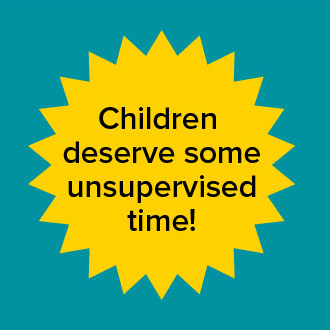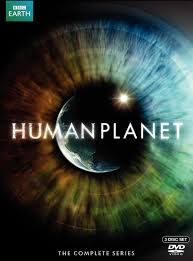This ryetdnrakh
show sounds fantastic, as does the underlying message: What purpose is served in underestimating kids? We are alerted to it by North Carolina family farmer Stevie Taylor, who blogs here! Enjoy — and Merry Christmas, too! – L.Â
Dear Free-Range Kids: Thought I’d share a real treasure my family discovered this month. We checked out The Human Planet DVDs from our local library.
The Human Planet is a series by the BBC that explores humans living in remote areas of geographical extremes, using the same survival methods their ancestors used for hundreds of years. The series is appealing for many reasons, but almost every episode shares the stories of children working alone, with their siblings, or in peer groups in crucial roles to support their families.Â
A 12 year old boy and his siblings guards their mountainside crops from marauding monkeys. A 10 year old girl is entrusted to lead a desert caravan to a hidden well. Eight year old friends capture tarantulas for food in the jungle, a 14 year old chases off a herd of elephants so his family’s cattle can drink safely from a lake, a 15 year old captures and teaches an eagle to hunt for his family.Â
My children (ages 10, 12, 13, and 15) have all been spellbound. Although it isn’t the purpose of this series, the episodes serve as an excellent reminder of the amazing abilities of young children and the ways other cultures trust their children to contribute to the well-being of their families and communities.
I realize those of us lucky enough to live in well-developed countries don’t want our children forced to search for dangerous spiders for food, or risking life and limb against 2 ton elephants, but the pride these children show in completing their tasks, the respect extended to them by their communities, and their joy in being fully engaged in their family’s culture is noteworthy.Â
I am lucky to live on a small homestead in a rural community and I have seen the same looks of pleasure, satisfaction, and self-confidence over the years as my children have been trusted with basic power tools, daily care and butchering of livestock, heavy farm chores including harvesting, chopping and hauling wood, loading and unloading hay bales for the season, etc. They have taken the bus to school since kindergarten (horror of horrors!!) despite being the first ones on at 6:30am and last off at 4:30pm, and have always been expected to help with the cooking and care of their siblings once they are home. They have greatly enjoyed seeing what children in other cultures are capable of doing to support their families.
The Human Planet is a great show for Free-Range parents and a reminder to those holding back that allowing even young children to play an important role in their family’s day-to-day existence is a rewarding experience for everyone. An excellent family viewing experience while the kids are on holiday break this season!! Be sure to check it out!
Stevie Taylor — Live. Laugh. Farm.



Maybe a tangent…
Gene Cheeseman on the ‘Gold Rush’ television show about mining gold in the Yukon, Canada started working for his father when he was 6 years old by clearing snow with a Caterpillar D6 heavy bulldozer (18 tons).
Right now I’m watching “Home Alone” which is sort of related to this (?).
…and have always been expected to help with the cooking and care of their siblings once they are home.
Oh dear. It’s A Modest Proposal all over again! (My inner grammar cop isn’t always quiet. 🙂 )
Rural families usually encourage more freedom and responsibility for their kids. I doubt that it is just because rural people need the extra hands for all the chores but also because when kids have more opportunities for fun outdoors, they take it. Kids who live in towns/cities do not have the same opportunities outdoors.
This looks great, but heck, all you need is original episodes of Sesame St. to see what kids are capable of doing on their own. Perhaps everyone over 40 should submit a little video clip of themselves talking about what they were allowed to do as a kid…Or pretty much read any book that takes place prior to the 80’s, any biography about anyone during the depression/WWII/1950’s/1960’s/1970’s etc…Pay attention to what they write about how their childhood was.
Uh.. even the Brady Bunch shows the kids mostly doing things on their own, getting to and from school on their own, and only consulting with patents at specific times… I could go on and on…
Curious that there are only 4 comments on this……..
although I guess there were too many other distractions on Christmas day.
The world is full of children who don’t live the American dream (or nightmare, depending on your point of view.)
Back in the 1980’s I lived in a part of my city that included a rather large old-world style market area. It was full of fruit and produce shops, cheese stores, bakeries, fish stalls, butchers….spice shops, and old curiosity collectibles.
Early evenings and weekends the community was teeming with kids. These were the children of the people who owned the shops.
I used to wander around, shopping, lounging – and just watching the kids. They were amazing. They worked. They helped their parents run their stores. And many of them were young. They were completely self-unaware….and yet self-secure and confident. They had a distinct purpose, usefulness, and played an important role in that community.
They laughed and had fun while they worked….they were children, after all.
But they were not there to be preyed upon, pampered or petted.
They were an integral part of the socio-economic construct.
And whether they knew that or not – they thrived.
They added a distinct element of normal and natural charm and energy to the flavor of the place – and made it so much more than what it would have been, without them.
In many places in the world, this is still the case.
A child with something useful to add to their community, is a child not necessarily exploited, but a child blessed with the opportunity to engage in the life of that community in a positive way.
If this is denied or nullified by nothing but a preoccupation with the notion of danger – then that child winds up whisked away into a rarified existence….as if somehow something other than quite human. (like a pampered pet.) Un-natural. Unwelcome…..an “other.”
The English author Jeremy Seabrook has quite a lot to say about all of this, in several of his books – well worth reading.
I recall when I was a kid, I loved being useful.
This peaked when I was a boy scout. Community service was high on my list. I wasn’t just a schoolkid anymore, but someone actively involved in the overall adult life of my town….helping out. Play was replaced by utility. And it made me feel……grownup. The learning curve from that was beyond value.
So I’ll raise a glass of seasonal cheer and toast the children of the world….long may they prosper! And their effort does not go un-noticed. Neither does their anticipated peril diminish my respect and admiration for their undaunted spirit.
Twalumba!
(that’s “cheers”, in Zambian tonga)